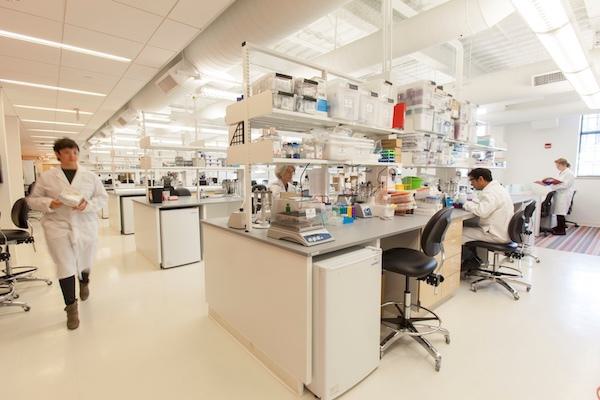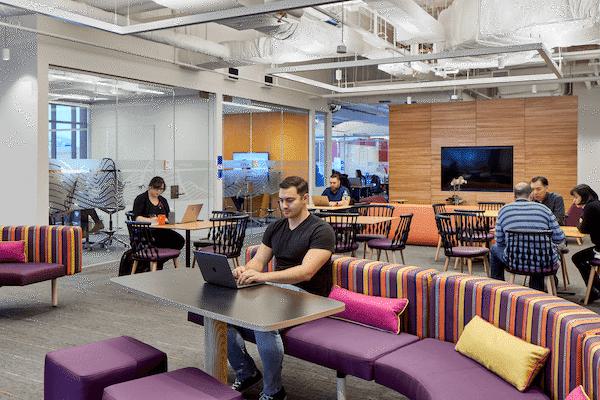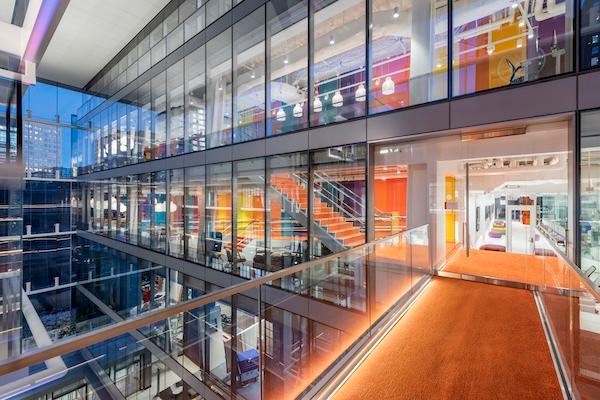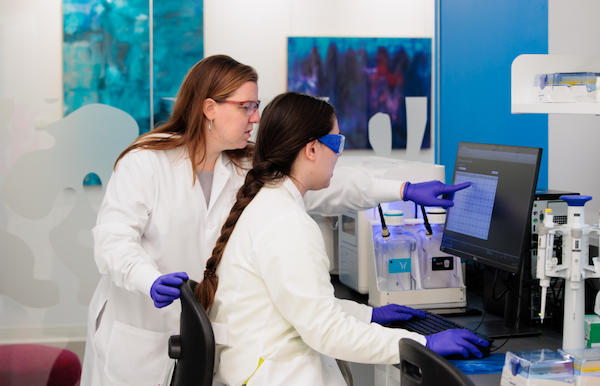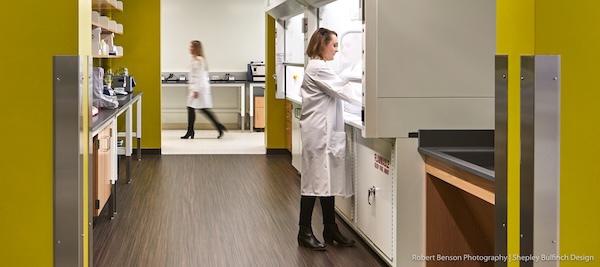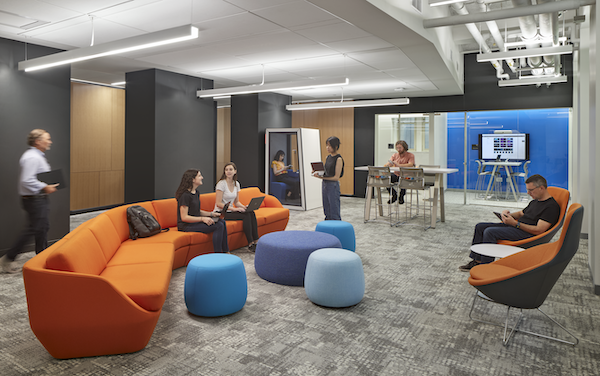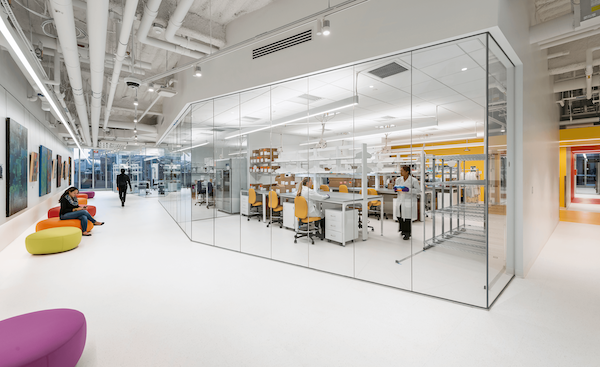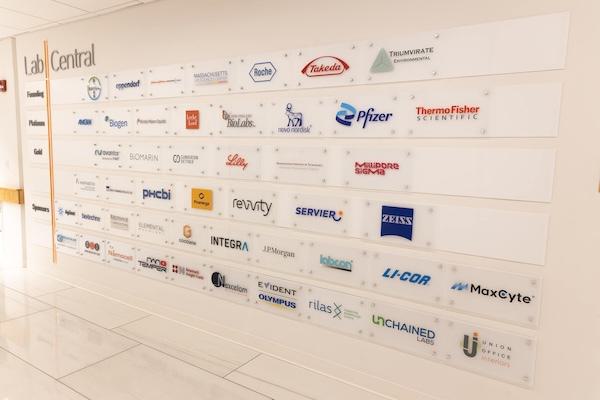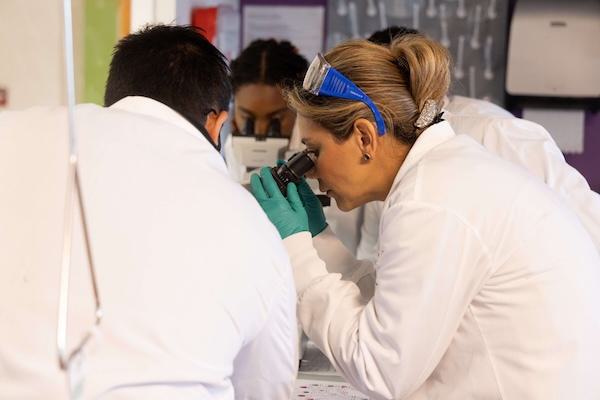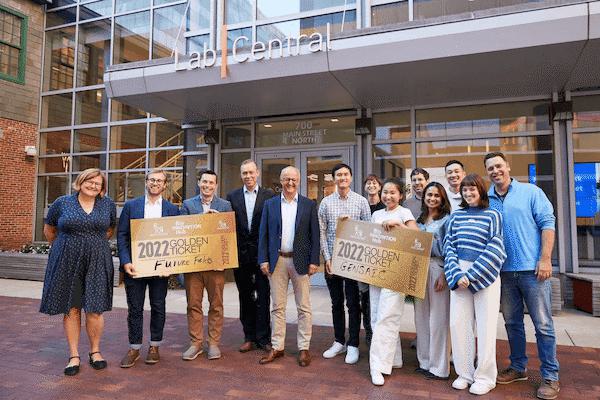Starting a biotech company presents a unique set of challenges that can be daunting to new founders – identifying a location and space, raising capital, developing a community of fellow entrepreneurs, setting positioning and strategy, hiring specialized talent, dealing with intellectual property and regulatory complexities, and those are just the beginning.
With more than 225,000 square feet of state-of-the-art lab and co-working space and having onboarded thousands of biotech entrepreneurs and scientists since 2013, LabCentral has unparalleled expertise in creating the perfect environment for life sciences startups to grow and thrive. The LabCentral team provides optimized scientific environments and numerous business resources for growing teams, enabling them to develop novel therapies, scale their businesses, and prepare for the progress of their science through scale up and clinical trials, strategic partnerships, acquisitions and IPOs.
When a biotech founder joins LabCentral, they can expect a comprehensive experience that empowers them throughout their entire residency, starting with the application process (see “Everything You Need to Know About Applying to LabCentral”) and continuing with multi-pronged business guidance and support, whether they are in the early, growth or biomanufacturing stage. Tim Jarrett, LabCentral’s Associate Director of Resident Success, shares what CEOs, founders, business leaders and employees can expect when they join the LabCentral community.
Could you describe the typical founder or business leader that joins LabCentral?
We see a variety of founders coming into LabCentral. Some have started and run biotech startups in the past, and many are first-time founders who come from academic environments where they’ve made a promising scientific discovery and are planning to create a new company around it. They might partner with a co-founder who will run the business side of the company and come in as a team of one or two people using a single lab bench. Typically, these early-stage teams have received very little funding, are hyperfocused on reproducing data, and still have strong ties to the academic world.
Although their team is well versed in the science, new founders often don’t have extensive business experience. We realize that this can be unfamiliar territory, which is why LabCentral supports teams’ scientific and business growth, helping founders navigate the complexities of starting, operating and growing a new biotech company.
What is LabCentral’s approach to delivering that business support?
Without question, one of our key cornerstones is networking and community, built upon our belief that being an active part of the life sciences ecosystem is critical. That is why we are laser focused on providing full and immersive access to our built-in community of VCs, pharma partners, industry experts and others in a variety of ways. This access is pivotal for the growing companies, and an advantage that can be difficult to replicate outside of the LabCentral community.
As a founder, LabCentral hand-delivers this vibrant and engaged community, opening doors to critical contacts and creating numerous opportunities to engage with them. The LabCentral team is always available to answer questions, offer guidance and discuss your changing business requirements – during residency, and even afterwards, as an alumni company.
Can you outline some of the specific ways first-time founders and other business leaders can take advantage of this network and broader business support?
Absolutely. On day one, we sit down with new residents (founders, business leaders, scientists, and staff) to be sure they know who all their direct LabCentral contacts are – for example, our Resident Success Team, General and Lab Operations Teams or Science Strategy Team. They can reach out to these individuals and teams at any time with questions or to discuss specific business, operational or scientific issues and requirements. We also make sure new teams are aware of all the ways they can leverage our network to support and grow their business. Some of these include:
- Resident Success Program – This comprises several LabCentral initiatives, including our Mentorship Program. LabCentral teams, including business leaders who are in a growth phase can apply for acceptance in this six-week crash course that provides unlimited access to industry experts, VCs, and other mentors. Together, they work to solve issues they are facing, such as setting or realigning their business strategy, preparing or tweaking an investor pitch deck, identifying strategic partners and more. Throughout the process, they are exchanging ideas and insights and receiving advice and guidance that is key to successfully growing their business. The course culminates with an opportunity to pitch their company to a group of VCs, offering exposure to an audience that is eager to invest in LabCentral companies.
- Mastermind Cohorts and CEO Roundtables – These business-focused workshops and events give resident leaders an opportunity to informally gather and work on their business alongside peers. They discuss issues critical to operating, growing, and fundraising. This can include how to organize a board meeting, work successfully with your board, coordinating and defining meetings as you grow, and creating and maintaining a company culture. Other areas might include how to start conversations with potential pharma partners, identifying key equipment vendors, CROs, and CDMOs for outsourcing research, how to hire and fire, and more.
- LabCentral Community Events – For us, networking opportunities extend beyond industry experts, investors and pharma partners. We’ve created a vibrant culture that ensures all our residents can easily and organically connect with each other – peer to peer. We regularly host a variety of events, including Gallery 1832 openings, Happy Hours, and other creative get togethers so residents can get to know each other in the open and informal community spaces within our facilities. For small companies without large teams, these are great ways to be part of something bigger simply by being part of LabCentral.
- Operational Support – We simplify the financial side of LabCentral residency, particularly for first-time business leaders, often eliminating the need to hire for operational roles. We have a centralized procurement platform where we compile two invoices each month for our residents. One is for the physical space they’re occupying, which is the same amount every month, and the other is for lab supplies, an itemized invoice that includes everything they purchased in that timeframe – consumables, reagents and equipment. The cumbersome task of managing and tracking expenses is done for them. Residents just pay their invoices and continue to focus on what matters most – advancing their science and growing their business.
This blog offers a peek at the type of experience founders and business leaders can expect when joining the LabCentral community. Stay tuned for our upcoming blog that will detail the LabCentral experience for scientists and researchers.
If you’re interested in learning more about how LabCentral residency helps to accelerate the success of new founders and other business leaders, contact Tim Jarrett at tjarrett@labcentral.org or Megan Rivera at mrivera@labcentral.org.
